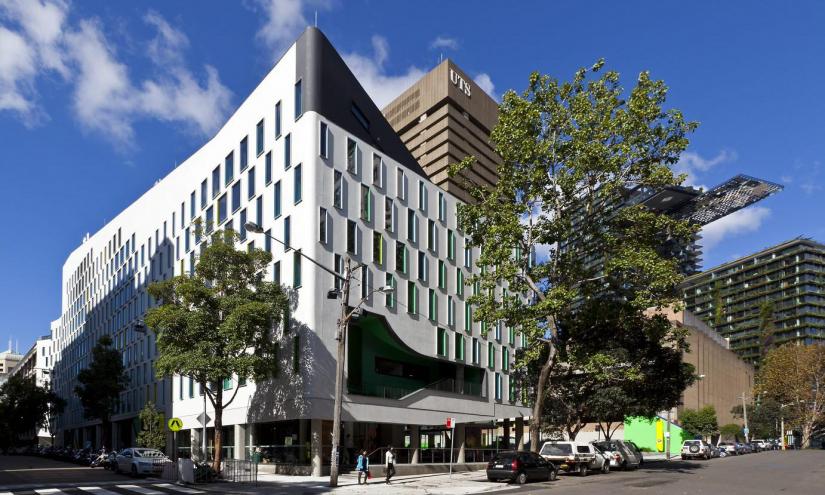Amidst the unique challenges the higher education sector faces, UTS and other universities pledge to be alert and proactive in mitigating the gendered impacts of COVID-19.
It has been called a ‘pink-collar recession’ – the first recession to hit women’s jobs harder than men’s.
The gendered impacts of COVID-19 are becoming increasingly apparent, and will be disproportionately felt by women long after the initial crisis period has subsided.
UTS and seven other universities have signed a joint statement, committing to action on gender equity and pledging not to allow COVID-19 to unravel gender equity gains.
The statement acknowledges the gendered nature of social and economic effects resulting from COVID-19, and the potential risk that these could undo decades of progress towards gender equity in higher education.
‘As part of the advisory group who created this statement, I am proud that UTS signed up without hesitation,’ says Tracie Conroy, Director, Equity and Diversity at the UTS Centre for Social Justice and Inclusion.
‘This commitment mirrors our approach to social justice as 'business as usual'. Even in such difficult times, UTS remains authentic in its commitment to workplace diversity and inclusion.’

Five actions to preserve gender equity through COVID-19
‘Preserving Gender Equity as a Higher Education Priority During and After COVID-19’ is a joint sector position statement prepared by a new advisory group including representatives from a range of Australian universities.
The commitments include:
-
Actively seek equal representation of women in COVID-19 response planning and decision-making as per the recommendations of the United Nations.
-
Formally monitor and report on gender equity impacts of COVID-19 related decision making (including compounding intersectional factors) within our own institutions and collaborate with other universities and sector partners to address emerging issues.
-
Continue our participation in the Science in Australia Gender Equity (SAGE) Athena SWAN initiative.
-
Maintain gender equity and diversity programs and Key Performance Indicators for gender equity and diversity where they currently exist.
-
Preserve the gender equity progress which has been made to date and into which has been invested significant time, effort and resourcing over many years, by maintaining:
-
women’s representation at senior academic levels D and E
-
women’s representation at senior professional staff levels 10+
-
support for the progression of women as students, higher degree researchers, and early-mid career researchers
-
support for gender equity for those studying and working in non-traditional disciplines such as Science, Technology, Engineering, Mathematics and Medicine.
Other signatories to the joint commitment include: Griffith University, La Trobe University, Macquarie University, Murdoch University, Western Sydney University, The University of New South Wales, and the The University of Sydney.
It was also signed by key sector partners including Science in Australia Gender Equity, the Academy of Science, Male Champions of Change Australia and Equity Practitioners in Higher Education Australasia.
Why are women disproportionately affected by COVID-19?
This nature of work undertaken mainly by women – both paid and unpaid – plays a large part in affecting outcomes. This is demonstrated in a growing volume of research that shows broader societal and economic impacts disproportionately affecting women.
Women are overrepresented in the caring and service industries, and more likely to be low paid, casual or part-time. In addition, women perform the greater share of unpaid care work. Globally such work is equivalent to 2 billion people working on a full-time basis and accounts for 41.3 per cent of GDP in Australia.
The Australian Human Rights Commission suggest that the impact on women stands to undo decades of progress towards gender equality, while also poses an amplified risk of gendered violence.
Looking specifically at the higher education sector, a report released in May warned that the pandemic risked exacerbating inequalities in research and academia, reversing years of progress, especially in STEM areas.
Intersectional impacts
Applying a gendered lens to the pandemic’s impact is not to ignore the outcomes impacting other communities or groups. Compounding intersectional factors influence outcomes in every area, from health to career to access to services.
Along with formally monitoring and reporting on the impacts that crisis management decisions have on gender equity, signatories to the statement will include such factors in their assessment.
We are acutely aware that the COVID-19 crisis has also highlighted the increased vulnerability for particular groups, including Aboriginal and Torres Strait Islanders, LGBTIQA+, first in family and/or from lower socio-economic backgrounds, those isolated from support and professional networks overseas, of Asian backgrounds, and those living with disability.
An effective pandemic response must take into account multiple inequalities and disadvantages.
By placing gender front and foremost of our own crisis response, it is our hope that the higher education sector will lead the way in responding inclusively, and that we may contribute to shaping a more socially just society both during and after the crisis.

